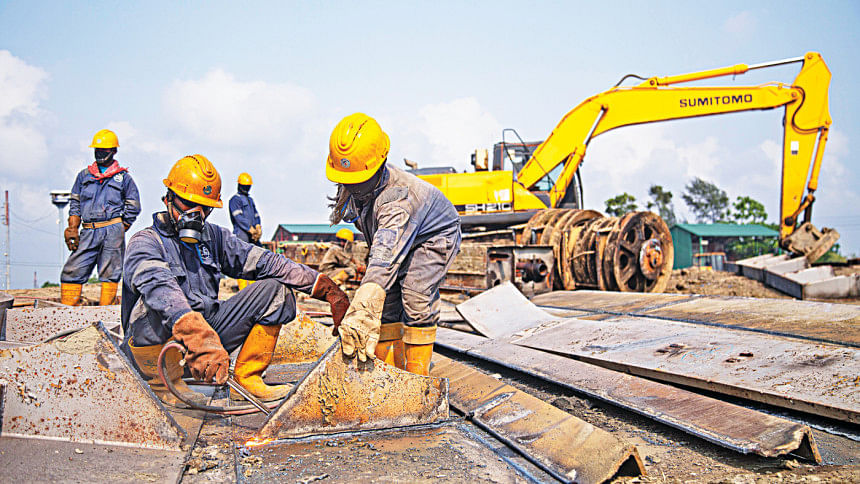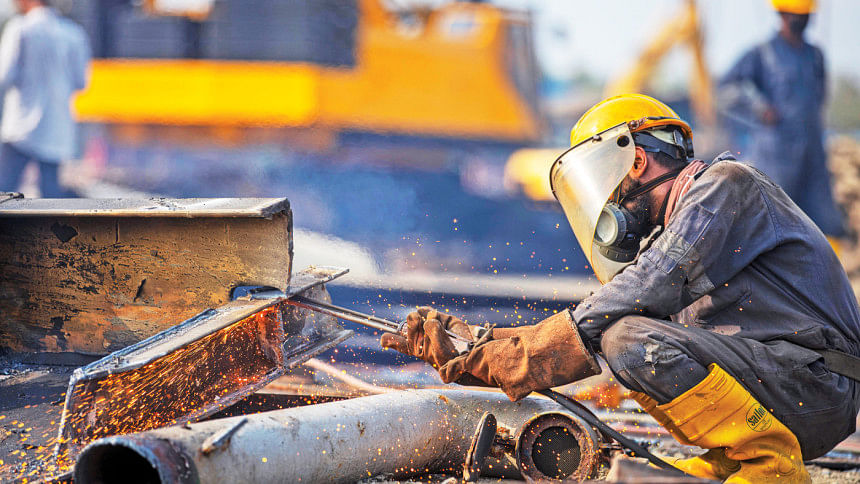Traditional yards keep hurting workers

Traditional shipbreaking yards in Sitakunda continue to operate in unsafe conditions, causing serious concerns about both worker safety and hazardous waste management.
Many of these yards continue to skirt existing regulations, putting labourers at daily risk.
On February 15, Nazim, a 33-year-old worker, suffered a serious head injury after being struck by a falling object. He was not wearing a helmet, meaning the depth of the injury left him unable to work for nearly a month.
Workers reported that the yard had no designated safety officer to enforce protective protocols, and most labourers operated without adequate safety gear.
Elias, a co-worker, told The Daily Star, "Our yard still follows old methods of shipbreaking, unlike green yards, where work begins only after safety checks and full protective gear."
He also noted that even when gear is provided, workers often neglect to use it due to discomfort or a lack of awareness.
Another incident occurred on March 15 last year when 36-year-old cutterman Mizanur Rahman fell from a ship. Mizan, a native of Sitakunda in Chattogram, was working without any safety gear at the time and sustained a spinal injury along with crushed toes.

He said the shipyard had not provided him with a safety belt and boots. "This accident could have been prevented if I had proper safety gear," he added.
Accidents like these are common in old shipbreaking yards, where explosions, falls, burns, and falling objects continue to injure workers.
A total of 257 people were killed and over 300 were seriously injured in accidents at these shipbreaking yards between 2005 and 2024.
Of them, 140 workers were killed between 2014 and 2024, according to data compiled by NGO Shipbreaking Platform, an international campaigning for clean and safe ship recycling.
Labour rights activist Fazlur Kabir Mintu highlighted a lack of accountability, saying, "These yards are not under any effective monitoring. Government agencies appear helpless in enforcing regulations."
In contrast, he pointed out, green yards follow international safety standards with proper oversight, making them safer.
Environmental risks add another layer of concern.
A 2021 study by two faculty members from the University of Chittagong revealed dangerously high levels of heavy metals, such as cadmium, chromium, lead, and zinc, in agricultural lands near shipbreaking yards.
These pollutants, originating from ship dismantling activities, pose long-term threats to the environment and local communities.
In response to these risks, the Bangladesh Ship Recycling Act of 2018 mandated that shipbreaking be conducted only in government-approved yards that comply with strict environmental and safety standards.
However, enforcement remains weak as many traditional yards lack effective waste management systems and continue to violate the law, prompting fines from the Department of Environment.

 For all latest news, follow The Daily Star's Google News channel.
For all latest news, follow The Daily Star's Google News channel. 



Comments